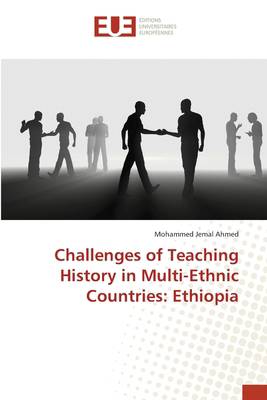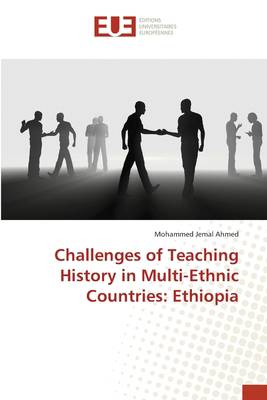
- Afhalen na 1 uur in een winkel met voorraad
- Gratis thuislevering in België vanaf € 30
- Ruim aanbod met 7 miljoen producten
- Afhalen na 1 uur in een winkel met voorraad
- Gratis thuislevering in België vanaf € 30
- Ruim aanbod met 7 miljoen producten
Zoeken
Challenges of Teaching History in Multi-Ethnic Countries: Ethiopia
Ethiopia
Mohammed Jemal Ahmed
Paperback | Engels
€ 36,95
+ 73 punten
Omschrijving
An Italian anthropologist Carlo Conti-Rossini called Ethiopia "un museo di populi"- a museum of peoples. It is to describe the ethnic, linguistic and cultural heterogeneity of the peoples living within the confines of Ethiopia's borders. Even though, being multiethnic nation has its own advantage, the existing multiethnic and multilingual situation of Ethiopia has become a challenge to its education system. Mainly social studies, specifically history education become the first victim in this regard. The main objective of this study is to identify factors that affect the teaching of national history in Ethiopian academic institutions particularly in Ethiopian High schools and public universities. The result of the findings reveal that the first and the most challenge was absence of national consensus on national history. Different Ethnic groups of the country were mistreated and systematically excluded from the country's past. These situations provoke them to raise resentment on Ethiopian history. They began raising questions on Ethiopian history like who is an Ethiopian; who wrote what to whom? Additionally, the government policy has been among the topmost factor.
Specificaties
Betrokkenen
- Auteur(s):
- Uitgeverij:
Inhoud
- Aantal bladzijden:
- 52
- Taal:
- Engels
Eigenschappen
- Productcode (EAN):
- 9783639545241
- Verschijningsdatum:
- 6/12/2016
- Uitvoering:
- Paperback
- Afmetingen:
- 150 mm x 220 mm
- Gewicht:
- 91 g

Alleen bij Standaard Boekhandel
+ 73 punten op je klantenkaart van Standaard Boekhandel
Beoordelingen
We publiceren alleen reviews die voldoen aan de voorwaarden voor reviews. Bekijk onze voorwaarden voor reviews.







